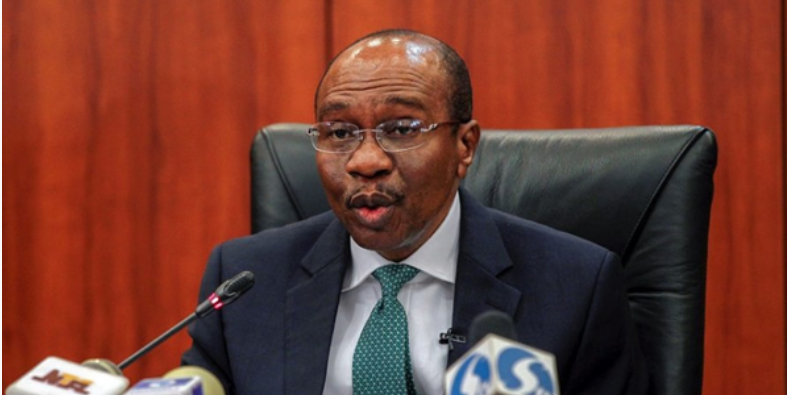The speed at which cryptocurrencies are becoming a mainstream asset class in Nigeria is remarkable. Nigerians remain one of the biggest adopters of these digital assets and aren’t looking to slow down anytime soon.
However, despite the increasing number of adopters, the debate around cryptocurrency is still raging. Institutions and government agencies in the country continue to disagree over the consequences of digital money.
Those who are against the official adoption of cryptos are of the notion that it is capable of displacing fiat, leading to the possible dismantling of banks, and even the central banks. This, they thought would cause volatility in the financial system. They are also of the opinion that it would increase financial fraud and could jeopardise national security.
Individuals on the other side of the table believe that perhaps there can be an orderly transition toward a coexistence between sovereign money and cryptos.
They believe the old banking sector will change, embrace blockchain technology and a wave of innovation unlike anything witnessed in the previous three decades will ensue.
Unfortunately, most countries’ regulators are of the former notion, believing cryptocurrency will lead to economic restraints. This includes the Central Bank of Nigeria (CBN).


The CBN emphasised its anti-crypto stance in February when it prohibited Nigerian banks from facilitating crypto transactions. The CBN’s move to declare all cryptocurrency transactions illegal in February and its later mandate to banks to shut down accounts suspected of dealing in cryptos has had huge consequences in the country. Below are some of them:
Strigient FX transfers
One of the potential rewards of crytocurrencies and blockchain is the ease of making payments across borders that they offer. A lot of people get to transfer funds to destinations of their choice without going through stringent steps and without paying so much.
However, the restrictions placed on cryptocurrency exchanges by the CBN reinstate the stringency of transfers. Citizens have no other way than to resolve to use bank-powered FX transfers, which are less than instantaneous and expensive.
There’s the problem of double transfer fees charged by the recipient bank and the receiver’s institution, making exchanges also expensive and unattractive. This has had a hit on remittances into the country as the figures continue to dwindle.
Increase in Peer-to-peer trading
Despite the CBN ban on cryptocurrency exchanges in the country, peer-to-peer trading of these assets can still take place. As expected, peer-to-peer trading has instead witnessed tremendous growth as many young Nigerians are adopting it as a preferred method of exchange.
According to data from Usefultulips, bitcoin’s P2P trading volume in the country has increased by about 16% barely a week after the CBN order. Nigeria posted $7.35 million in P2P trading volume, representing a $1 million increase from the $6.35 million processed prior to the ban.


Indeed, since the beginning of 2021, peer-to-peer bitcoin trade has increased to $204 million, making it the largest in Africa.
This is largely due to the activities of platforms that enable peer-to-peer transfers, as Nigerian dealers quickly made the switch.
These transactions became more attractive to lots of Nigerians, accounting for approximately $9.4 million in weekly P2P volume out of the $18.8 million recorded in the Sub-Saharan Africa region.
Increasing Possibilities of Crytocurrencies Fraud
The use of unregulated P2P trading platforms to transact cryptocurrency exchanges opens up a lot of individuals to the possibility of fraud.
Scammers use pictures and other images to pretend that they’ve completed their half of the bargain and pressure parties to do theirs as well.
Once the parties fall for the scammers’ pressure and agree to make the transfers without confirming the authenticity or not, they end up losing their money. They will also have a really difficult time rectifying the situation.


These scammers also notoriously use chargeback functionality on some payment systems to defraud their counterparty in a peer-to-peer transaction.
After completing a P2P transaction, this fraudster will initiate a chargeback and demand the cash in order to cancel or reverse the initial payment he made. This is especially true if the seller approves the transaction without first verifying that the funds are in his bank account or wallet.
Stifling innovations in Blockchain
The CBN clampdown on cryptocurrency exchanges in the country also posed a number of increasing regulatory risks, which have subsequently stifled innovation and technology, especially in the blockchain sector.
In a broader sense, this ban has had an impact on the fintech space in the country, limiting their level and scope of payment facilitation.
Due to suffocating domestic restrictions, the country’s Fintech and crypto trading platforms are unable to compete favourably with their global counterparts.
Significant crypto trading companies have either had to move their head offices from Nigeria to enable them to continue offering services or restrict Nigerians outright from having a share of their innovative frameworks.
Spurring relocation attempts
Despite the central bank’s resistance and a lack of consistent rules towards cryptocurrencies, individuals in the country continue to own some of the largest shares of such assets per capita due to the high demand.
A lot of Nigerians continue to adopt virtual currencies for different reasons, including as a hedge against the country’s capital limitations and to send money across the world.
With the blockchain’s significant benefits still lingering, crypto exchanges were forced to begin expanding and relocating to other countries.
With this move, they were able to meet rising consumer demand in the local market while also avoiding local Nigerian laws that had previously hampered their operations.
The Apex body had to resolve to a more stifling policy, which included the blocking of accounts suspected of having connections with crypto trading within the country.
The result led to a massive decline in the records of P2P transaction records within the country. However, trading activities remained sustained.






